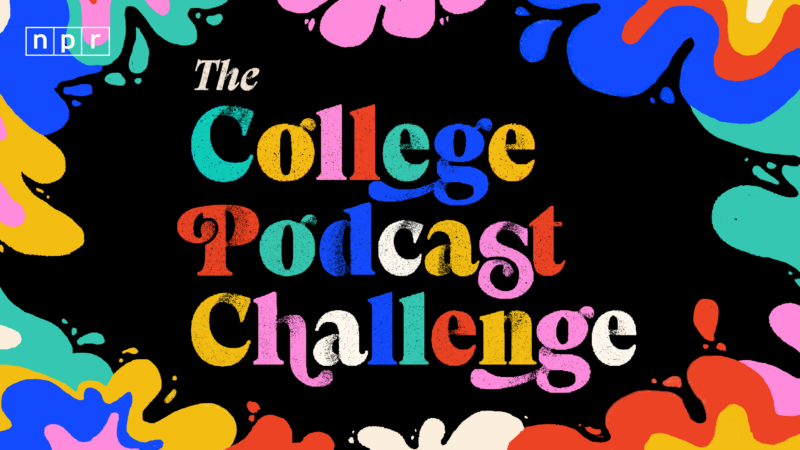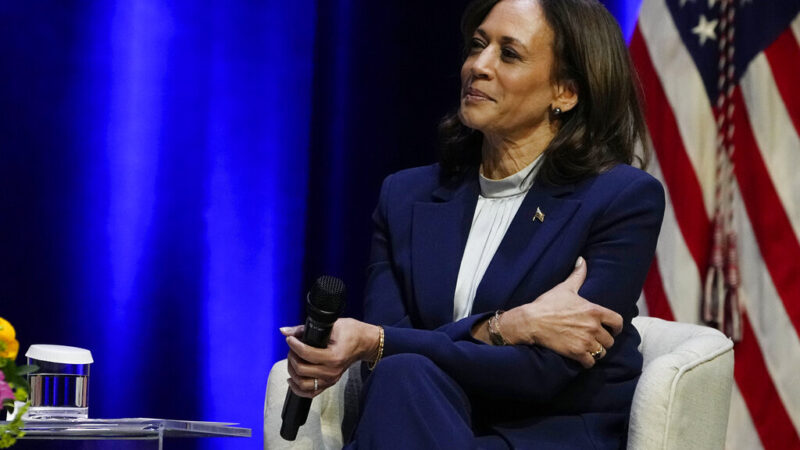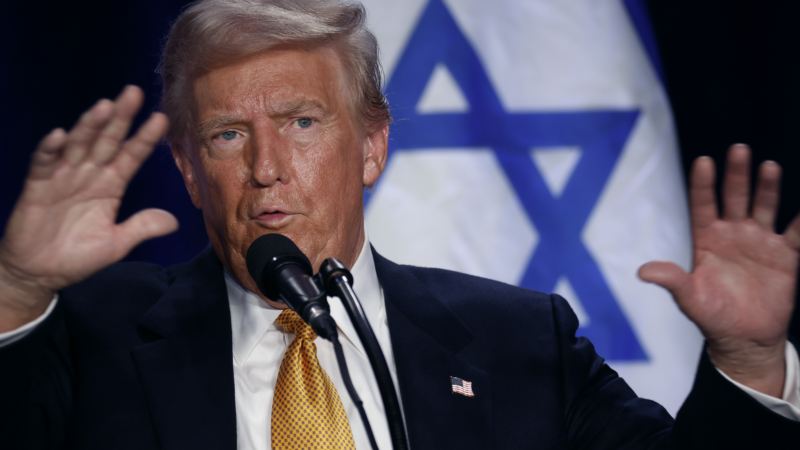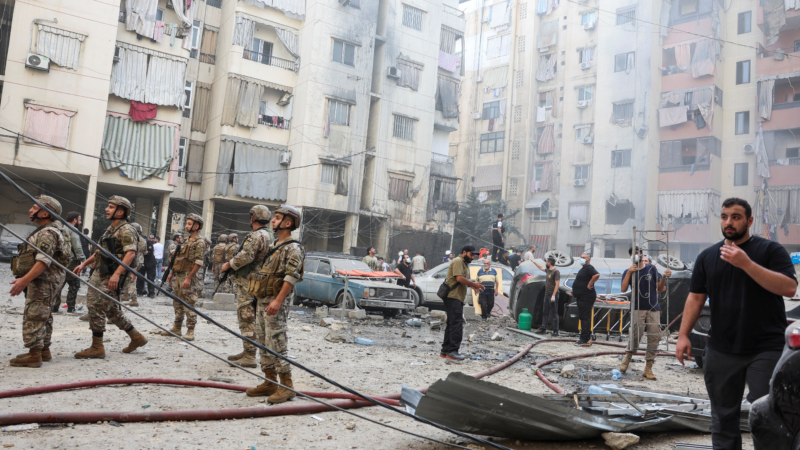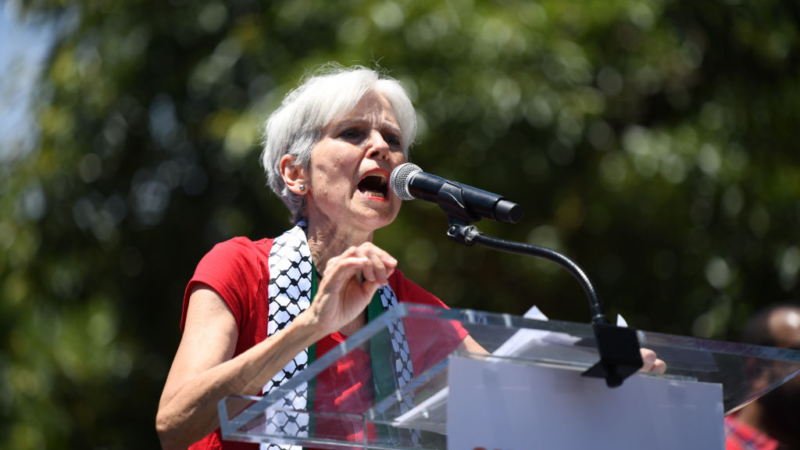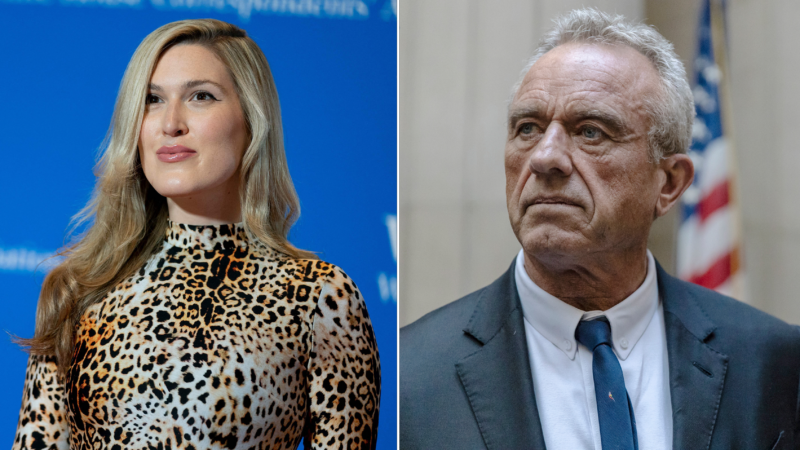Announcing NPR’s fourth annual College Podcast Challenge
Everyone has a story to tell. That’s how professor Emily Sendin introduces the podcasting portion of her intro to communications class at Miami Dade College.
She tells her students that, no matter what kind of story – whether it be personal narrative, local or investigative reporting or fiction – making a strong podcast is all about being authentic and vulnerable and really putting your heart into it.
After three years of running the College Podcast Challenge, our team at NPR’s education desk has not only had the opportunity to listen and broadcast some of the best student-produced work in the country, but we’ve also met young people and educators who are as deeply interested and invested in podcasting as we are.
Which is a good thing, because we’re about to do it again!
The NPR College Podcast Challenge is back for its fourth year, with a $5,000 cash prize. And the opportunity to have your voice, your story, reach the NPR audience and beyond.
So, if you have a passion project or a story you want to get off your chest, here’s your chance to make it happen. Whether you’re a seasoned student journalist working on a thesis project, or a math or science major recording your first podcast in your dorm room — we want to hear from you.
Many of our prior standout entries have come from students with little or no podcasting or journalism experience. One of them was Sendin’s student at Miami Dade – and last year’s grand prize winner – Michael Vargas Arango. At the time, he was a 21-year-old business and psychology student who had recently moved to the U.S. from Colombia.
Vargas Arango took the class assignment as a chance to open up about his rare mental health condition, schizoaffective disorder, with hopes of challenging misconceptions around mental illness. He took our contest as a motivator and gave himself a deadline to actually tell a story that’s been sitting with him since he was diagnosed as a teenager.
In the end, Vargas Arango tells us, he was able to create something that he feels really good about sharing with the world. And well, the rest is history. (You can listen to Michael’s winning podcast here.)
So, students, give it a shot! No matter where you go to school, or what you’re studying, or whether you’re an international student at a U.S. college or university, our team is eager to listen to your work as a part of our search to find the best student podcast in the country.
Yes, of course there are rules, and one key change this year: After limiting college students to eight minutes or less in previous years, we’ve heard from students asking us to accept longer, more thought-out audio projects. So we’re gonna give that a try this year! The new maximum length is 12 minutes. As in years past, longer entries will be disqualified.
Here are the basics
This year’s College Podcast Challenge is open for entries as of today, Sept. 19, 2024, and will close on Jan. 10, 2025. (Or if you’re ready, you can submit your podcast here.) That’ll give you the fall academic term and the holidays, and a chance for students to submit your class final projects.
We’ll choose 10 finalists, and from there, NPR will award the winner a $5,000 scholarship, with $500 prizes for the other finalists.
Just like last year, the college contest will be open to students of all ages who are pursuing an associate’s or bachelor’s degree, as well as those who have already graduated earlier in 2024. This means that if you’re a recent grad, you can still enter!
There’s one key difference between the college competition and our Student Podcast Challenge for students in grades 5-12: Those younger entrants must have an adult submit their work. College podcasters, you can enter your own work, without going through a professor, mentor or your school, as long as you’re 18 years or older.
How it works
Our basic guidelines remain pretty much the same: Students can create a podcast on any topic you wish to explore. To give you an idea, we listened to entries last year on why it feels impossible to find love, what it’s like to completely unplug for a day in school and a thoroughly reported story on book banning. Your podcast can also be in many different formats: an interview, narrative story, or even investigative reporting. You can do it by yourself, with a friend, or with your entire class. It’s really up to you what you want to do and how you want to do it.
Where to begin
To get you started, we’ve created this Sound Advice page that includes a range of podcasting resources on how to choose a topic, how to write in your own voice, how to edit audio and use music in your podcast, among others. Even, and we’re serious about this, how making a pillow fort can make you sound better! (It’s a trick our NPR reporters and producers use when we’re on the road!)
One contest tip: Feel free to submit as many entries as you like! There is no way for us to tell whether you’re sharing your first-ever podcast or one of hundreds you’ve been working on. But again, we will listen to each and every one, so send us any work that you’re proud of.
More resources
You can find more tips and tricks on The Students’ Podcast, our podcast on how to make a good podcast – new episodes coming soon, so please keep an eye out! We also encourage you to get a feel for what we’re looking for by listening to last year’s winning podcast, which can be found here. And previous years’ winners’, here: Aria Young, Miriam Colvin and Anya Steinberg.
For more tips, advice and the latest updates on this year’s contest, make sure to sign up for our weekly newsletter. Students, we can’t wait to hear your stories, so on your mark, get set, record!
GPB morning headlines for September 20, 2024
Oprah Winfrey hosted an online event with Vice President Kamala Harris from Michigan Thursday. Several guests, including some from Georgia joined to discuss gun violence and access to reproductive care. Officials in Macon-Bibb County have announced a new affordable housing development in the heart of one of the city’s most prominent historically Black neighborhoods. The Atlanta Dream have clinched a spot in the WNBA playoffs.
Trump tells Jewish voters they have ‘no excuse’ for supporting Harris
In a speech to the Israeli-American Council, Trump described himself as Israel's "protector" and warned Jewish voters against voting for Vice President Harris.
Israel fires an airstrike in Lebanon’s capital in the latest fighting with Hezbollah
The attack came hours after Hezbollah fired 140 rockets at northern Israel and follows this week's deadly explosions of pagers and walkie-talkies carried by Hezbollah members.
Supreme Court rejects Green Party’s appeal to put Jill Stein on Nevada ballot
The court’s action upheld a decision of the Nevada Supreme Court.
Magazine writer Olivia Nuzzi is on leave over an alleged relationship with RFK Jr.
New York Magazine said Nuzzi's relationship with a former subject violates its conflicts of interest standards. She said the relationship "was never physical," but apologized for not disclosing it.
Tipped wages: How Question 5 seeks to lift minimum wage for tipped workers
The general minimum wage is $15 an hour under state law, but it's $6.75 for tipped workers. Question 5 seeks to gradually raise the tipped minimum wage to match the general minimum wage. Opponents argue the measure could harm workers and businesses.
